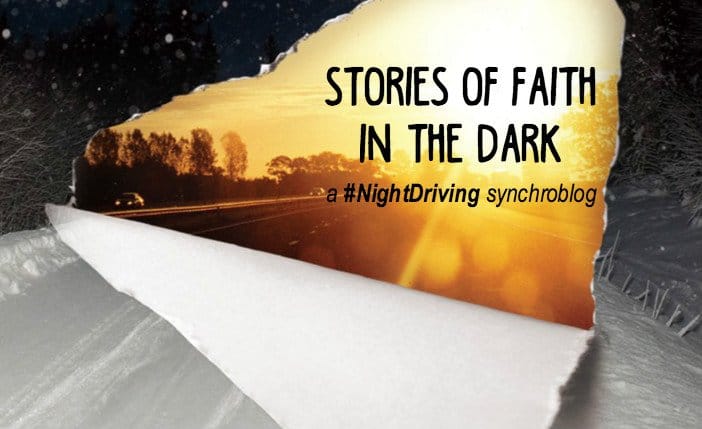
Strangely Dim
March 15, 2016
In many ways I have become extremely progressive and, gulp, liberal. That’s why I surprise myself when conservative evangelical lingo, prayers, songs, tumble out of me as naturally as if I still recite them every day. And it’s not just the ease and familiarity with which I utter them that is unexpected, but that these words are often accompanied by warmth at the recollection of my very earnest faith. Such is the influence of a mother tongue—it remains a precious part of me, no matter how far I’ve departed from its ideology.
This was the case when I recalled one of my beloved hymns from childhood, Turn Your Eyes Upon Jesus, I still can’t sing this one without tears prickling my eyes as the tune evokes deep emotions.
“Turn your eyes upon Jesus,
Look full in His wonderful face,
And the things of earth will grow strangely dim
In the light of His glory and grace.”
I spent the better part of my adolescent and young adulthood believing hard in this hymn. I was strongly convicted that there was something so beautiful and compelling about the face of Jesus that nothing else could compare. Jesus was so pure, his countenance so perfect, that a careful, devoted fixation on him will help me discern the counterfeits in this world and discard them from my life. I could be perfect, like my Jesus is perfect.
Of course, I had to work out what it meant to “turn my eyes upon Jesus” in practical ways. I was taught it meant an intentional time each morning marinating in the Word of God, which I did dutifully for years. I suppose my devotions were a time to conjure up the face of Jesus and recalibrate my posture each day. I did this, so that Jesus would always be primary in my life. I did it so that I could be reminded of the brightness of Jesus, and that the world would grow dim because of his shining light.
In the larger vocational calling for my life, it meant I was to pursue long obedience in the right direction. The idea was that it may be easy to get caught up in the rapturous atmosphere of a Christian concert with an altar, or “recommitment”, call from a charismatic speaker, but we must sustain that enthusiasm for the long haul. And what was that call? The point of filling yourself with Jesus during all those morning devotions, was to then give your life for Jesus, and spend it telling others about him. Nothing else really mattered. Everything else is darkness in light of this glorious call.
Moment by moment, day by day, year after year I cultivated these habits of turning my eyes on Jesus, moving my life in the direction of faithfully following him. My focus was on his bright light, the hymn echoing in my being, “and the things of earth will grow strangely dim.” Until it did. The world went dark, and all I had was the glow of Jesus, but it no longer was a light that shone beautifully. It became a light that was visible only to those with a myopic view of Christianity, who believed God existed in a narrow definition of religion. It was a lamp confined by a shade with all kinds of fine print—the do’s and don’ts of legalism, the boundary markers that kept others out, the deafness to the cries of the marginalized. And no matter what I did to reach for the light I had spent so much time worshipping, it could not illuminate my way. I had wished so hard for the world to grow dim, and when it did, I felt lost and alone.

I had to learn to see in the dark. I had to shed the theologies of my past, which had taught me to surrender all of me for the cause of Christ. I needed to do this in order to rediscover who I really was because so much of my “self” had been sacrificed. While others had their teenage years to discover their personalities and inclinations, my development was delayed and took me into the twenties and early thirties to do that work. I had to re-learn that it was okay to have human emotions, human talents, human interests, and to enjoy human art. I had spent so much time dimming them “in light of his glory and grace”, it took time and effort to re-ignite those flames. Till this day, I still encounter things in the world that I instinctively recoil from fear, a lingering effect of my fundamentalist past, and have to remind myself there is light even in these people, even in these creations.
What I have come to realize is that the light of God doesn’t work by outshining the world God beautifully created. God’s light illuminates God’s world. All that time I spent conjuring up a bright image of Jesus in my morning devotions to forcibly turn my eyes upon, should’ve been spent simply paying attention to the beauty that already existed. The radiance of the rising sun, the warmth of authentic friendships, and the emerging courage and strength from inside of myself.
And as I revel in the beauty of this world, enjoying the amazing diversity of cultures, communities, and yes, even other faiths, what has grown strangely dim is Jesus. What has become surprisingly ordinary is Jesus. This Jesus I am getting to know in a fresh way is one who doesn’t clamor for the spotlight, who looks very much like every other in a crowd, and who finds no dividing line between the sacred and the mundane. This Jesus doesn’t overpower others, he lets his light be snuffed out. He is still—he is okay to grow dim. It is a bit harder to follow this Jesus because he is so unglamorous it’s easy to miss. He looks a lot like the poor, the child, the sick, and our neighbor.
But I’m tracking him as I learn to see in the dark.
***This post will be linked up to Addie Zierman’s Synchroblog on the occasion of the release of her latest book, Night Driving.**

